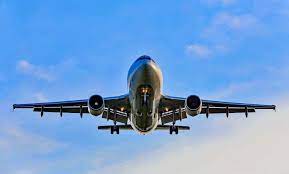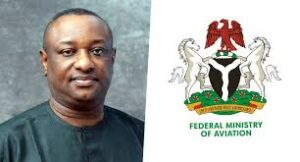
Insecurity: FAAN, NAMA to suspend flights extension for sunset airports
…As Domestic airlines lose N4.3bn annually
The safety and security situation in the country’s aviation industry and by extension Nigeria, has compelled the Federal Airports Authority of Nigeria (FAAN) to withdraw flight extension rights granted to airlines that fly to sunset and sunrise airports.
Sunsets airports refer to aerodromes without landing facilities, which means that airlines can only operate between 7a.m. to 6:30p.m.
FAAN said henceforth, any airline that applies for an extension of operating hours to aerodromes that operate earlier than 7am and later than 6pm would no longer be granted.
The Managing Director, FAAN, Capt. Rabiu Yadudu disclosed this on Wednesday at the second day of the ongoing 2022 Airline and Airport Business Summit and Expo (AABSE) held in Lagos.
Yadudu said that its management had already met with the management of NAMA on the issue and a decision had been taken.
He appealed to all stakeholders, especially airline operators, to comply with the directive, insisting that the two agencies would not change the policy.
There are about 28 federal and state-owned airports in the country.
Apart from the Murtala Muhammed Airport (MMA), Lagos, Nnamdi Azikiwe International Airport (NAIA), Abuja, Port Harcourt International Airport (PHIA), Omagwa, Aminu Kano International Airport (AKIA), Kano and Akanu Ibiam International Airport (AIIA), Enugu that operate 24 hours services, other 23 airports operate between 7a.m. to 6p.m.
Most of these facilities, known as sunset airports, do not have the infrastructure such as airport lighting that enables flights to operate into the night.
He explained that in case of unforeseen circumstances, the two agencies may reconsider their position.
He said, “I think it is actually the safety and security considerations that made us make this particular decision. We have already sat down, met with the NAMA team and we reached an agreement that there is no need for extension any longer. Once an airport is sunrise to sunset, it has to remain so and it is for all stakeholders to respect that particular provision and respect it accordingly.
“You don’t plan safety and security policy based on permutations. When some things like that happen, we can then cross the bridge when we get there. Right now, we are working normally and we have to plan our operations the standard way. If you plan such things, then you will never have standard operations anywhere because these are force majeure.”
At a conference in July, the domestic airlines had claimed that they lose at least N4.3 billion annually to airports that provide only daylight service, which restricts them from flying longer hours.
The amount of loss was disclosed by the chief operating officer (COO) of Ibom Air, Mr. George Uriesi, who is also a former Managing Director of FAAN.
Uriesi had said the lack of 24 hours flight operations to major routes in Nigeria was impeding the growth of the airlines.
He said domestic carriers were losing an average of N4 million per flight, N360 million in 90 flights and N4.3 billion annually on every flight lost to sunset airport operations.
This restriction, Uriesi noted, had led to a huge under-utilisation of aircraft fleets by Nigerian airlines as against the global industry standards.
“This is due partly to too many impediments in the operating environment that limit airline productivity. These include limited runway availability across the domestic network, multiple operational infrastructure deficiencies, poor organisation and many others,” he had said.
Earlier in the month, NAMA had reaffirmed that all airports nationwide have adequate facilities to support night operations.
The agency, contrary to claims by operators, said all the airports have approach and landing navigational aids, as well as satellite-based and performance-based navigation procedures that can enable safe landing at any time of the day.
Acting Managing Director of NAMA, Matthew Pwajok, noted that the idea of tagging some airports in the country as “sunrise” or “sunset airports” was misplaced.
Pwajok said, “All airports in Nigeria have instrument landing facilities for approach and landing, meaning they are operating based on Instrument Flight Rules (IFR) and not based on Visual Flight Rules (VFR) where the pilots are required to visually approach and land within Sunrise to Sunset time.
“Apart from one or two private aerodromes, all federal and state government-owned airports managed by NAMA are equipped with Instrument Landing System (ILS), except where they are temporarily unserviceable or the runway and approach lights are unserviceable, but nevertheless you cannot refer to them as sunrise or sunset airports,” he added.



